Personal development
Do ambiverts exist?
Melissa Summer, The Myers-Briggs Company
We all have some introverted and some extraverted parts of ourselves, but according to the theory of personality types on which the Myers-Briggs Type Indicator® assessment is based, ambiverts don't exist.
Why knowing your personality type is critical to a growth mindset
Global Marketing, The Myers-Briggs Company
If people think ability is innate, it could be holding them back
How personality type affects team performance and job satisfaction
Global Marketing, The Myers-Briggs Company
New research sends clear message to team leaders
Why and how innovative organizations welcome conflict
Global Marketing, The Myers-Briggs Company
Effective conflict management is a pillar of high-performing organizations
Can you pick up three bits of rubbish?
Kevin Wood, The Myers-Briggs Company
How micro habits are key to the environmental mission of our new charity partner, Take 3 for the Sea
Harnessing the power of personality type through MBTI Certification
Melissa Summer & Kevin Wood, The Myers-Briggs Company
What can you do with an MBTI certification? Learn more about popular applications of the MBTI tool like leadership and team development, and why becoming an MBTI certified practitioner could be your best professional investment.
Happiness and profit are synergistic
Global Marketing, The Myers-Briggs Company
Why well-being is crucial to employee and organizational performance
Do ambiverts exist?
Melissa Summer, The Myers-Briggs Company
We all have some introverted and some extraverted parts of ourselves, but according to the theory of personality types on which the Myers-Briggs Type Indicator® assessment is based, ambiverts don't exist.
In-person development and the importance of human synchronization
Melissa Summer, The Myers-Briggs Company
What is human synchronization and why is it important for learning and development trainers, consultants and coaches to consider?
MBTI personality type and relationships
Melissa Summer, The Myers-Briggs Company
How can MBTI personality type help strengthen relationships? Do people with the same type get along better? Listen to this episode of The Myers-Briggs Company Podcast to find out!
Does the MBTI assessment work across cultures?
Melissa Summer, The Myers-Briggs Company
The world has been flattened by technology and working across county and cultural borders is now the norm. But can you use the Myers-Briggs Type Indicator assessment across borders? Here’s what you should know.
Introverts in conflict: what we learned in 2022
Kevin Wood, The Myers-Briggs Company
New research and data shows how different personality types approach conflict. But what does it mean for Introverted types?
Will Gen Z usher in a new generation of work-related conflict?
Global Marketing
Awareness of different approaches to conflict could help multi-generational workforces understand each other and work together better.
How to build a more effective hybrid workplace
Global Marketing, The Myers-Briggs Company
Paying closer attention to employee needs is the way to make remote, in-office, and hybrid teams function better
Conflict at work: what are your options?
Melissa Summer, The Myers-Briggs Company
If conflict management is something you dread, here’s how to start turning it around
Leadership, Extraversion & Introversion
Melissa Summer, The Myers-Briggs Company
What should leaders be aware of about these well-known personality differences?
Introducing The Myers-Briggs Company Podcast
Melissa Summer, The Myers-Briggs Company
The Myers-Briggs Company is launching a new podcast about psychology, personality, work life, and how to get the best from life.
Were you asked if you wanted to go back to the office?
Kevin Wood, The Myers-Briggs Company
If not, you might be part of a hybrid strategy that’s about to fail.
Social contracts, returning to the office and retaining your people in the new hybrid workplace
Melissa Summer, The Myers-Briggs Company
As employees return to the office, they’re expecting more flexibility in their social contracts with employers. How can HR help?
How to develop high potential people using MBTI personality insights
Melissa Summer, The Myers-Briggs Company
HR professionals get insight into team dynamics, individual strengths and more with potential leaders when using the Myers-Briggs Type Indicator assessment.
Using Personality Assessments for Team Building
Melissa Summer, Global Content Marketing Manager
How can personality assessments like the MBTI tool help teams work together more effectively and understand each other better?
The Platinum Rule for business
Rachel Cubas-Wilkinson, Senior Consultant, The Myers-Briggs Company
How observing the Platinum Rule builds stronger workplace relationships
Trust and remote working
Helen Rayner, Thought Leadership Lead Consultant, The Myers-Briggs Company
What can you do to help maintain positive relationships remotely?
People need people!
Nikhita Blackburn, Thought Leadership Lead Consultant, The Myers-Briggs Company
Tips for working from home
Building trust through transparency
Catherine Ellwood, Principle Consultant, The Myers-Briggs Company
How openness and predictability make teams more effective
Who leads the way?
Melissa Summer, Content Marketing and PR Manager, The Myers-Briggs Company
Gender equality, diversity, leadership and International Women’s Day
Top 10 Leadership Development Books
The Myers-Briggs Company
Our recommended titles for you this World Book Day
Leading self
Claire Bremner, Principal Consultant, The Myers-Briggs Company
Why is self-awareness important for leadership?
Making a social impact
Helen Denny, Head of Global Customer Experience, The Myers-Briggs Company
Reflections on our first charity partnership
How to think like an entrepreneur
Rose Collins, Marketing Content Executive, The Myers-Briggs Company
Celebrating Global Entrepreneurship Week
Are some personality types happier than others?
The Myers-Briggs Company
Read our latest research on well-being
Are you a gig worker?
John Hackston, Head of Thought Leadership for The Myers-Briggs Company
If you aren’t sure, read on…
The Psychology of Change
Melissa Summer, Content Marketing and PR Manager at The Myers-Briggs Company
There’s an important part of business growth that’s often overlooked – change.
Put your skates on!
Claire Bremner, Principal Consultant at The Myers-Briggs Company
What can Dancing on Ice teach us about the transferability of skills?
Traditional or Original?

MBTI Talk
MBTI Step II facets and the holiday season
Work digital, play digital

MBTI Talk
How social media and gamification can help employees grow
Type and activism

Gill Coombs, writer and career coach
Gill Coombs, writer and career coach, shares her thoughts on Idealists and activism
The power of Introversion

OPP
Are introverts being limited by misconceptions?
Raising self-awareness: What works?
Helen Rayner, Lead Consultant, OPP
Do people with different type preferences use the same or different methods to develop their self-awareness?
How does personality type affect self-awareness?
Helen Rayner, Lead Consultant, OPP
Continue to explore research around self-awareness – this time focusing on the role of your MBTI type.
Self awareness
Helen Rayner, Lead Consultant, OPP
Research results are in! How do people benefit from improved self-awareness and how do they get there?
Reflections on my first 18 months as an MBTI practitioner in the University of Oxford

Dr Mike Moss, Alumni Careers Programme Manager, University of Oxford
Reflections on the first 18 months of an MBTI practitioner.
Type and Appreciation - Part 2

Michael Segovia, lead facilitator for the MBTI Certification Program, CPP, Inc.
How do you show your appreciation and thanks of other people?
Type and Appreciation - Part 1

Michael Segovia, lead facilitator for the MBTI Certification Program, CPP, Inc.
How do you show your appreciation and thanks of other people?
The colourful world of personality type

John Hackston, Head of Thought Leadership, OPP
How you can gain instant insight from colourful MBTI type resources.
Are you an entrepreneur? Knowing your MBTI type could be useful

John Hackston, Head of Thought Leadership, OPP
John Hackston explores recent OPP research.
Top MBTI and Type books

Collaboration - MBTI experts and practitioners
Which MBTI book will you add to your collection this World Book Day?
Leadership strengths through the lens of Type

Aidan Millar - Human Development Consultant for Psychometrics Canada
Research Study exploring leadership strengths through the lens of Type
10 top tips – add depth to coaching with the MBTI framework

Katy Lyne, Principal Consultant at OPP
Get the most from the MBTI assessment when coaching individuals.
Early obstacles to MBTI Type development

Betsy Kendall, COO and Head of Professional Services, OPP
Raising awareness of challenges to early Type development that we can all consider and explore
How to influence with impact

Penny Moyle, CEO OPP
Damian Killen reveals the role MBTI Type has on successful influencing
What do you get when you fill a room with MBTI enthusiasts?
Penny Moyle, CEO at OPP
Penny Moyle reflects on an inspiring MBTI user event
Recovering from stress: Getting back to your best

Penny Moyle, CEO at OPP and John Hackston, Head of Research at OPP
How knowing your MBTI Type and Core Character can help you recover from stress
Introducing the Core Characters of Type
Betsy Kendall, COO and Head of Professional Services, OPP
How can we make it easier to talk about the real power of MBTI: Type dynamics?
Valentine's reflections: Sandra and Terry 20 years on
Betsy Kendall - COO at OPP
What the FIRO questionnaire can tell us about interpersonal compatibility
I feel I have an MBTI preference for Thinking

Richard Stockhill MBTI Product Manager
This post explores Richard's experience in struggling to decide on his best-fit Type and how he finally felt comfortable with his preference for Thinking.
Team development and the power of MBTI Step II
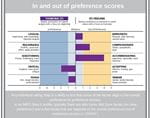
Alexis Hutson - Coach and Mentor to Doctors
Alexis Hutson, professional coach and mentor, shares her experience of using MBTI Step II for team development. A great example of the differences between Step I and Step II.
Type tips for coaching and development

Aidan Millar - Human Development Consultant for Psychometrics Canada
Aidan Millar explores how coaches can help clients flex between operating with their natural MBTI preferences and outside them when necessary.
Why bother with a questionnaire when working with MBTI Type?
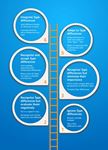
Betsy Kendall - COO at OPP
If the goal of the MBTI assessment is to establish best-fit Type, why bother with the questionnaire?
MBTI icebreaker exercise – it’s a numbers game

Penny Moyle - CEO at OPP
Great feedback exercise for practitioners, helping to convey the brilliance of the MBTI framework.
Five most common ways to alienate your staff

John Hackston - Head of R&D at OPP
The employment market seems to be improving, which is good news for jobseekers but not necessarily for employers; having more jobs available means that there are more opportunities for workers to leave. All the more important, then, that managers don’t give their people that extra incentive to start looking elsewhere. Here are five of the most common ways in which managers can (and unfortunately do) alienate their staff.
Does all this talk of Ambiversion mean the MBTI framework is out of date?

John Hackston - Head of R&D at OPP
Extraverts? Haven’t heard from them in a while. Introverts? They’re SO last year. There are some new kids on the block – the Ambiverts – and they are sweeping everything before them. Apparently, Ambiverts are better leaders, make better salespeople, and are just all round better human beings. It appears that psychologists have just discovered that Ambiverts exist (hence all the recent press coverage); as a result, the old idea of a forced choice between Extraversion and Introversion, as encapsulated in the Myers-Briggs Type Indicator (MBTI), is clearly outmoded and should be abandoned.
FIRO – getting so much from so little

Jenny Rogers - Executive Coach at Jenny Rogers Coaching
I am coaching the CEO of a large charity. He’s 55 and has been in his job for nine years. He looks grey and anxious, slumping in his chair. “I’m tired of my team treating me like their parent. It’s hard enough being a parent at home. I’m exhausted, our funding is under threat, I don’t think I want to do this job any more”. He tells me readily that he’s been what he calls ‘psychometrified’ many times; but he’s never taken the FIRO- B assessment...
Chris Froome – the nature (and nurture) of a winner

Catherine Chapman - Product Manager at OPP
In the last few days of the race, the media buzz around the Tour de France reached a crescendo in the UK – not least because Team Sky’s champion rider Chris Froome was dominating the race, and the chances for others to put the brakes on him were narrowing. In an unprecedented move, Team Sky released Froome’s physiological “power data” to enable “a greater understanding of his performance”, following accusations that his advances in stage 10 of the race were beyond normal physical abilities. The data revealed that the speed with which Froome achieved the daunting climb to La Pierre-Saint-Martin in stage 10 was exceptional, but well within his means.
Coaching using Type: insights from Myers, Jung, Adler, Cookie Monster and you! Part 2

Jean Kummerow PhD - psychologist and author
This is the second posting based on Jean Kummerow’s keynote presentation at OPP’s MBTI User’s Conference on 16 June 2015. The first post gave background on the ‘Four Crucial Cs’ Adlerian model. This second part describes how to use type within that model.
Coaching using Type: insights from Myers, Jung, Adler, Cookie Monster and you! Part 1

Jean Kummerow PhD - psychologist and author
As you already know, the practice of Coaching has many iterations and even several definitions. The one I like to use is “a method of assisting individuals to improve their performance in some area”, from Davison & Gasiorwski in the 2006 Journal of Individual Psychology. That definition encompasses so much of what we do with personality type.
What's your perfect Type holiday?

Betsy Kendall - COO at OPP
What's your idea of the perfect break? This holiday Type table looks at 16 vacations custom-made for each of the MBTI Types.
Digital badges

Robert McHenry - Chairman at OPP
How do you best represent yourself to potential employers? How do you bring your professional reputation to the forefront? Up to now, the answer has been to craft and polish a CV. However, we know that prospective employers are likely to spend just eight seconds reading each CV submitted with a job application. The new way to get yourself noticed is to display your qualifications on a site like LinkedIn with the use of digital badges.
Did Little Red Riding Hood have an S Preference?

Aidan Millar - Human Development Consultant for Psychometrics Canada
Well, not necessarily. But it is true that her demise could have been attributed to an all-too-common Sensing blind spot: a failure to quickly and accurately recognise how facts and present realities connect to a bigger picture – and often, a very meaningful one.
Push me, pull me - the persuasive power of the MBTI process

Penny Moyle - CEO at OPP and Lorraine Mills - Head of Consultancy at OPP
Whether or not you are a sales professional, and even if you don’t see selling as part of your job, there are times when everyone needs to influence or persuade. OPP recently worked with a regional sales team in a financial services organisation to help them become more successful. The same techniques we applied there can easily be adapted to create more persuasive communication for anyone – not just sales people.
Re-engage with Type using MBTI Step II

Penny Moyle - CEO at OPP
Last week, I had the pleasure of joining an MBTI Step II qualification workshop for the first time in several years. This revamped workshop incorporates several new ideas to help practitioners to engage their clients in MBTI in general, and the Step II instrument in particular.
Emotional Intelligence: What is it and does it matter?

Lorraine Mills - Head of Consultancy at OPP
In my work with individuals across all sectors and at all organisational levels, I am hearing more and more from managers and their HR colleagues about the importance of ‘Emotional Intelligence’. It’s a concept that has been around for a while and it looks like it is no longer the latest fad, but a permanent part of our people development “business as usual” tool kit. However, Emotional Intelligence has become a ‘catch all’ panacea for desirable interpersonal skills, a rather mixed bag of the positive qualities one might hope for in a colleague or leader.
2015 - a year to celebrate coaching
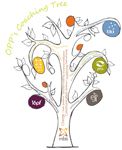
Penny Moyle - CEO at OPP
Coaching has always been an important part of the L&D service that OPP’s consultancy offers. It’s also the mainstay of the practice for many of our independent practitioner customers. Why is there such a demand? In short, organisations need their leaders to develop a great range of responses to the challenges they face, and to develop greater psychological resilience. Additionally, many organisations are seeking to develop coaching skills among line managers, knowing that this too can have a significant and positive impact on organisational performance.
Goal-setting and resolutions – five top tips and five probing questions

Claire Bremner - Senior Consultant at OPP
It’s that time of year again... having reflected back on 2014, many will now be looking ahead to 2015 and identifying their self-improvement resolutions and goals for the year ahead. Although I don’t personally set New Year’s resolutions, goal setting helps focus my intention, effort and actions. It seems timely to reflect on how we set goals, as many in organisations will be in the midst of reviewing performance against targets or key performance indicators (KPIs) and engaging in personal development planning for the year ahead.
Top five blog articles of 2014
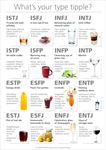
OPP Ltd
Visits to our Personality Matters blog were at an all-time high in 2014, and we covered a wide range of topics in our weekly posts. Over the last 12 months we've talked about the best MBTI-based books and the various resources available for L&D teams. We’ve promoted Movember, and we’ve commented on the Paul Flowers furore. We've also continued to thrive as thought leaders in a diverse range of workplace psychology issues, from recruitment and assessment centres to polarity management. But what are the top five posts that readers have returned to again and again?
More serious fun in L&D: Typies get personal
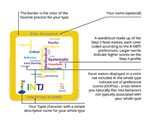
Penny Moyle - CEO at OPP
I love MBTI Step II. My first consulting role working with the MBTI framework was for an HR consultancy that always used the MBTI Step II assessment in preference to MBTI Step I. So I got to know it really well, really quickly and although I always use my Step II knowledge to underpin conversations with people who have only completed MBTI Step I, I never find it as satisfying as being able to get into the depth that one can reach with MBTI Step II insights.
Trust: it’s what success is all about

Lorraine Mills - Head of Consultancy at OPP
We all know from personal experience that we trust some people and not others. Likewise we trust some organisations, and yet find we are sceptical of the motives of others. This tendency to categorise entities in this way is part of an understandable strategy to manage risk.
What type time is it?

John Hackston - Head of R&D at OPP
Time. An ethereal concept, or a real resource? Something elastic, or an uncompromising task master? Sometimes there seems to be too much of it, and at other times never enough. Our relationship with time is one that travels with us through the stages of life and helps us to get things done .... or not… or eventually! Do we live in the future, the past, or the here and now? And what about the person next to you? You are both here and now, but are you really?
Six videos that help illustrate MBTI type

Betsy Kendall - COO and head of Professional Services at OPP
Training aids that are memorable and that bring clarity to descriptions of MBTI® type are like gold dust. One of the commonest questions I come across in the various MBTI-related Linked In groups, including OPP’s own OPP Qualified Practitioners, is the plea for good exercises to help illustrate the MBTI preferences and dichotomies.
Time to have some serious fun in L&D – part 2

Penny Moyle - CEO at OPP
Twenty years ago when I first started using MBTI in management development work, training room props were thin on the ground. I would often lead a development session armed with nothing more exotic than flip charts and masking tape for ‘living type table’ exercises.
Ten more books about MBTI and type that you can't afford to be without!
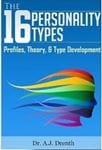
OPP
In the second of our blog posts looking at 20 invaluable books about MBTI® and type, we review another ten titles that have impressed MBTI practitioners or been a key support in their work with the MBTI assessment. As with the first batch, the books featured here are listed in no particular order, and comments are from individual reviewers who responded to our request for reviews on the Linked In group OPP Qualified Professionals.
Timelines and personality – tracking type in space and time

John Hackston - Head of R&D at OPP
One of the criticisms that people often level at the MBTI questionnaire is that it ‘puts you in a box’. MBTI practitioners, however, know that this isn’t true – although we will have many similarities to people of the same type, there are also many ways in which we are unique. Whatever our underlying psychological type, we have all been brought up in different environments, and this will have a big influence on our personality and behaviour too.
Ten books about MBTI and type that you can't afford to be without!

OPP
Which books about MBTI® and type have had the biggest impact on practitioners? We posted this question on the Linked In group OPP Qualified Professionals earlier this year, to discover the titles that had most impressed and inspired practitioners or been a key support in their work with the MBTI assessment. Twenty books rose to the top of the pile. Here are the first ten – in no particular order – with comments from the individual reviewers.
Why’d you do THAT?! Interpersonal needs and motivations

Pamela Valencia, Solutions Consultant at CPP, Inc
Understanding personality type helps us see how our minds are wired - how we like to get energised, take in information, make decisions, and orient ourselves to the outer world. Understanding interpersonal needs gives us insight into another aspect of our personality - what motivates our behaviour in regard to how much interaction we want with others.
Receiving feedback well... a question of give and take

Claire Bremner, Senior Consultant at OPP
I'm reading a book at the moment – Thanks for the feedback: the science and art of receiving feedback well by Douglas Stone and Sheila Heen (Harvard Law School). I bought it on the strength of an article in the Saturday Guardian by Oliver Burkeman, which included a comment that really made me chuckle: “Tell me what I did well, tell me what I should do differently and don't confuse the two. If I wanted a sandwich, I'd go to the office canteen.” If only receiving feedback was as straightforward as eating a sandwich!
Celebrate with 25 free resources for practitioners

OPP
Few things in life are free – but OPP has some really cool free resources to support you in your work! To help celebrate our 25 years in the business, we’ve taken a trawl through the various goodies available for zero outlay on our website. They range from white papers and feedback materials to fun quick guides and infographics – many of which can also be found on our practitioner downloads page.
The easy path to happiness, love and success?

Rob Bailey, Principal R&D Consultant at OPP
"Improve your self-esteem and you’ll rapidly improve your chances of fulfilment, success and happiness in life." This statement seems to makes perfect sense. (I made it up, but it’s typical of what you’ll find on the creaking self-help shelves of any bookshop). It appears both logical and emotionally appealing, probably in part because it sounds like something that might be easily fixed. Many self-appointed gurus and counsellors have made a good living off this expectation, and some pedal a myth that low-self-esteem is at epidemic proportions. However, scratch the surface and there are a couple of issues with self-esteem.
You don't have to be motivated to work here, but it helps!

Betsy Kendall, COO and Head of Professional Services, OPP
According to a recent CIPD report, job turnover has slowed significantly over the past 15 years. This means that, in general, people are choosing to stay in their current roles rather than make voluntary exits (ie resignations and retirement). On the surface it might appear to be nothing but good news for an organisation that much-valued members of staff are choosing to stay. However, for this to be a wholly positive trend, people need to be staying put for the right reasons...
Hitting the nail on the head

Jean Kummerow, licensed psychologist/consultant/author/trainer and co-author of the MBTI® Step II™ Interpretive Report
One of the differences we often talk about between Thinking types and Feeling types is their approach to a 'problem'. Usually Thinking types want to fix or solve the problem, and Feeling types prefer first that someone just listen and offer empathy. They are both showing how they 'care', but do so in very different ways.
The nonsense of benchmarking?

Claire Bremner, Senior Consultant, OPP
I met up with an ex-colleague from a previous organisation recently. During our catch-up he bemoaned the fact that a number of his clients wanted to engage in organisational benchmarking without seeming to know why or having a clear idea of how benchmarking might add value. The response to his question “Why?” was “Well, everyone else is doing it so we feel we should too.”
Why companies shouldn’t be afraid of talking about their people-development work
OPP Ltd
Is it just us, or has anyone else noticed that organisations seem generally reluctant to promote their people-development work? This might be understandable if a programme has not been too successful, or if it has been carried out in an area where heightened levels of sensitivity and privacy are required. But where the development work shows all parties involved in the best possible light (people-focused, progressive, innovative and adaptable, for example) why wouldn’t you want to tell the world about it?
The sporting elite: which personality characteristics contribute to sporting success?

Betsy Kendall, Chief Operating Officer, OPP, and Fiona Young, R&D intern, OPP
With Andy Murray clinching victory in the Wimbledon final, the England cricket team winning the Ashes, Chris Froome becoming the second British winner of the Tour de France and Christine Ohuruogu scooping gold in the 400m at the World Athletics Championships, it's been another great summer of British sporting success. Of course, physical prowess and natural sporting ability are essential ingredients for elite athletes, but here we consider which personality traits might make the difference between the good and the great in the sporting world.
Acting like an extrovert will make you happier
Rob Bailey, Managing Consultant, R&D, OPP
A Wall Street Journal article appeared recently that’s firmly in OPP’s area of interest. It claims that if you are an introvert and you’d like to be happier, you’d be better off acting like an extravert.
What your type can tell you about increasing personal and team productivity

Mark McCartney, Executive Coach, Saïd Business School
We expect employees and teams with different MBTI preferences to manage time and, more importantly, attention in the same way. Yet our experience tells us that putting a colleague on a traditional time-management course won’t work, as habits, behaviours, values and preferences run deep and are often hidden from view.
Avoiding the ‘so what?’ factor with MBTI development
Dr Penny Moyle, CEO at OPP
When I speak to people who have ‘done the MBTI’, all too often all they can recall from their experience is their four-letter MBTI type (sometimes even that is a stretch!). The initial impact has been lost, and the ongoing learning that should have opened up after cracking their four-letter code has eluded them.
Type and culture: two pieces of the same puzzle
Joanne Weston, Associate Certified Coach, International Coach Federation (ICF)
Our guest blogger Joanne Weston, ICF Associate Certified Coach and MBTI® practitioner, shares some practical tips for using the MBTI tool cross-culturally.
Infographic: the psychology of stress

OPP Ltd
If you think stress is everywhere, you’re right! But do you know how to cut the seemingly inevitable tie between the stressors of modern life, and the type of distress that sends people off sick, off the radar or off the rails? Our infographic takes a peek.
The MBTI instrument through the eyes of its practitioners
Penny Moyle, CEO at OPP
When we asked some of our customers about their use of MBTI recently, we loved the positive responses and wanted to summarise the comments we received. Just as the MBTI instrument distils the complexity of personality into a simple framework for understanding people, word clouds distil large swathes of text into an intuitive visual image, helping you get to the core of a message. We’ve picked out a few of our favourite aspects of the word clouds that we developed from answers to the following questions about the world’s favourite personality assessment. We’d love to hear which your favourites are too.
Where's the good careers advice when you need it?
Betsy Kendall, Chief Operating Officer and Head of Professional Services at OPP
Employers despair at how unprepared graduates are, and how ill-equipped they seem to be for taking control of their career paths and longer-term development. Modern companies expect individuals to be in the driving seat, to know themselves and to have a clear idea of what they want to achieve. And yet, without good career services in schools and colleges, how can young people get the insights and self-knowledge they so desperately need?
The MBTI questionnaire: still going strong after 70 years

Penny Moyle, CEO at OPP
Get out the cake and candles, wrap the carefully chosen presents, prepare your singing voice: the MBTI questionnaire turns 70 this year! The Myers Briggs Type Indicator is the most well-known and trusted personality assessment in the world, so on the occasion of its 70th birthday, I’ve been reflecting on why it has such enduring appeal. At OPP, we’re proud to be experts in an assessment that is the biggest player in the market – and this doesn’t just happen overnight.
Leadership - 10 New Year's resolutions
OPP
Having blogged on the theme of leadership through the last quarter of 2012, OPP presents 10 top tips for keeping leaders in top condition during 2013 and beyond.
Personality and the pursuit of happiness

John Hackston
After two years of intensive work, the Office for National Statistics has published a new report on how happy we are in the UK (Measuring National Well-being: Life in the UK, 2012). Inevitably, the news media have picked up on the “happiest places to live in the UK” (the Outer Hebrides, Shetlands and the Orkney Islands), but overall the survey shows that things are not as bad as we might have feared, despite the downturn.
MBTI Step II and leadership development
OPP
MBTI Step II provides the necessary depth that can bring clarity and insight to business and leadership development. Long time MBTI practitioner Niels-Peter Thoms extols the virtues of the instrument.
Bringing greater consciousness into organisations
Ralph Kilmann
How separate am I from my environment and its influences? Can I influence (and thus change) my surrounding systems so they are more supportive of my true and complete self? Ralph Kilmann looks at how conflict-handling tools might address these fundamental issues.
Type dynamics - who's in the driver's seat?
Helen Rayner
Type dynamics is all about the interaction of preferences. The sixteen MBTI types are a useful starting point, but it is these complex interactions that lead to the wide variations we see from person to person.
Personality, worrying and annual leave
Helen Rayner
A recent study examines the relationship between personality and how individuals maintained the benefits gained from taking annual leave.
Assumptional analysis and conflict modes
Ralph Kilmann
By seeing your assumptions face-to-face, you have the chance to revise them, which will surely inspire you to change your beliefs or modify your behaviour.
Psychological fitness: the key to resilience
Penny Moyle
Maintaining an optimum level of stress is crucial to good performance in the workplace.
Personality and self-awareness: navigating the hall of mirrors
Paul Deakin
Other people tend to view us rather differently to how we view ourselves.
The OPPrentice: objectivity would be a Sweet Thing
Kajal Ruparell
In this week's episode, Lord Sugar's confirmation bias seems to influence his decision on who to fire.
The management mismatch
Penny Moyle
Lack of self-awareness about their capabilities can leave managers underperforming in the eyes of their employees.
Reaching for your potential through type development
opp
By Nancy Barger, MBTI trainer and author of Introduction to Type and Change.
The OPPrentice: horror show for Team Phoenix
Kajal Ruparell - Senior Consultant at OPP
This week, the essential qualitites to master were commercial acumen, interpersonal skills, the ability to influence, and knowledge of the subject area.
Do we really give introverts a hard time?
pennymoyle
There is a socially desirable bias towards extraversion in most western cultures.
Is power sharing the key to engagement?
opp
Shared business ownership can have many benefits in the workplace.
January blues
heathercoop
Can certain personality traits mean you're more likely to be a happy person who can focus on the positive?
The importance of self-presentation
pauldeakin
Regardless of gender, physical apperance has an evident effect on how people are treated in the workplace.
Mythbusting: Affirmations don't work - at least not for everyone
pennymoyle
Affirmations as a form of positive reinforcement aren't useful for people who have low levels of self-esteem.
Pet ownership and personality
opp
What does your pet say about you? Recent research by OPP reveals some links to personality!
Mythbusting: you can tell a lot about someone from their handshake
pennymoyle
Contrary to popular belief, a person's handshake doesn't reveal much at all about their personality.
Categories
- B Corp
- Care
- Careers
- Coaching
- Communication
- Conflict management
- CPI260
- Current affairs
- Decision-making
- Emotional intelligence
- FIRO
- Infographics
- Leadership
- Leadership development
- Managing change
- Managing stress
- MBTI
- Onboarding
- Personal development
- Podcasts
- Recruitment
- Social media
- Sport
- Strong
- Team development
- TKI
- Top tips
- Training